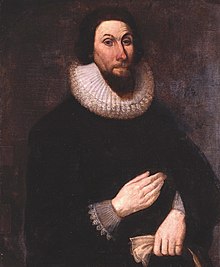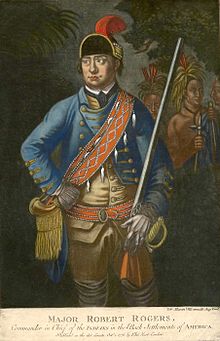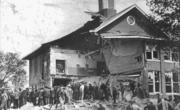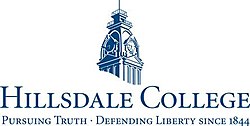May 18 is the 138th day of the year (139th in leap years) in the Gregorian calendar. There are 227 days remaining until the end of the year.
Holidays
- Christian feast day:
- Baltic Fleet Day (Russia)
- Battle of Las Piedras Day (Uruguay)
- Day of Remembrance of Crimean Tatar genocide (Ukraine)
- Flag and Universities Day (Haiti)
- Independence Day (Somaliland) (unrecognized)
- International Museum Day (International)
- Mullivaikkal Remembrance Day (Sri Lankan Tamils)
- Revival, Unity, and Poetry of Magtymguly Day (Turkmenistan)
- Teacher’s Day (Syria)
- Victoria Day (Canada)
- Victory Day (Sri Lanka)
- World AIDS Vaccine Day (International)
History
In 332, Constantine the Great announced free distributions of food to the citizens in Constantinople.
In 872, Louis II of Italy is crowned for the second time as Roman Emperor at Rome, at the age of 47. His first coronation was 28 years earlier, in 844, during the reign of his father Lothair I.

In 1096, First Crusade: Around 800 Jews are massacred in Worms, Germany.
In 1152, Henry II of England marries Eleanor of Aquitaine.
In 1268, The Principality of Antioch, a crusader state, falls to the Mamluk Sultan Baibars in the Siege of Antioch.
In 1291, Fall of Acre, the end of Crusader presence in the Holy Land
In 1302, Bruges Matins, the nocturnal massacre of the French garrison in Bruges by members of the local Flemish militia.
In 1313, Robert I, “the Bruce,” lands on the Isle of Man. Robert, with between 5,500 and 6,500 troops, predominantly spearmen, laid siege to Castle Rushen in Castletown, capturing it on 21 June 1313 and denying the English the island’s strategic importance which prevented Edward’s forces from reaching Stirling.
In 1388, During the Battle of Buyur Lake, General Lan Yu led a Chinese army forward to crush the Mongol hordes of Tögüs Temür, the Khan of Northern Yuan.
In 1499, Alonso de Ojeda sets sail from Cádiz on his voyage to what is now Venezuela.
In 1565, The Great Siege of Malta begins, in which Ottoman forces attempt and fail to conquer Malta.
In 1565, The Royal Audiencia of Concepción is created by a decree of Philip II of Spain.
In 1593, Playwright Thomas Kyd‘s accusations of heresy lead to an arrest warrant for Christopher Marlowe.

In 1631, In Dorchester, Massachusetts, John Winthrop takes the oath of office and becomes the first Governor of Massachusetts. The leaders of the Massachusetts Bay Company give all adult males who joined the Congregational Church the right to vote. John Winthrop is elected governor of Massachusetts in the first accredited election in the colonies.
In 1642, The Canadian city of Montreal was founded.
In 1652, Rhode Island passes the first law in English-speaking North America making slavery illegal.
In 1756, The Seven Years’ War begins when Great Britain declares war on France.
In 1763, Fire destroys a large part of Montreal.
In 1783, First United Empire Loyalists reach Parrtown (later called Saint John, New Brunswick, Canada after leaving the United States.
In 1787, Glass was engraved for the first time in Toulouse, France.

In 1795, Robert Rogers, American-English colonel (b. 1731) dies. He was an American colonial frontiersman. Rogers served in the British army during both the French and Indian War and the American Revolution. During the French and Indian War Rogers raised and commanded the famous Rogers’ Rangers trained for raiding and close combat behind enemy lines. He died in obscurity and debt, what little money he had going to pay an arrears in rent.
In 1803, Napoleonic Wars: The United Kingdom revokes the Treaty of Amiens and declares war on France.
In 1804, Napoleon Bonaparte is proclaimed Emperor of the French by the French Senate.
In 1811, Battle of Las Piedras: The first great military triumph of the revolution of the Río de la Plata in Uruguay led by José Artigas.
In 1812, John Bellingham is found guilty and sentenced to death by hanging for the assassination of British Prime Minister Spencer Perceval.
In 1843, The Disruption in Edinburgh of the Free Church of Scotland from the Church of Scotland.
In 1848, Opening of the first German National Assembly (Nationalversammlung) in Frankfurt, Germany.
In 1852, The state of Massachusetts passed a law requiring all school age children to attend school. The first state to do so and a rather strange thing at that. 90% of all children in Massachusetts were already literate. In particular, the Massachusetts General Court required every town to create and operate a grammar school. Fines were imposed on parents who did not send their children to school, and the government took the power to take children away from their parents and apprentice them to others if government officials decided that the parents were “unfit to have the children educated properly”.
In 1860, Abraham Lincoln wins the Republican Party presidential nomination over William H. Seward, who later becomes the United States Secretary of State.Abraham Lincoln was the SECOND Republican presidential candidate. The first — who obviously didn’t win or everybody would remember him — was California pioneer John C. Fremont.
In 1863, American Civil War: The Siege of Vicksburg begins.
In 1896, the U.S. Supreme Court endorsed racial segregation with its “Plessy vs. Ferguson” decision, which sanctioned “separate but equal” public facilities for whites and for blacks. This ruling was overturned 58 years later in the case of “Brown versus Board of Education.”
In 1896, Khodynka Tragedy: A mass panic on Khodynka Field in Moscow during the festivities of the coronation of Russian Tsar Nicholas II results in the deaths of 1,389 people.
In 1900, The United Kingdom proclaims a protectorate over Tonga.
In 1910, The Earth passes through the tail of Comet Halley.
In 1912, The first Indian film, Shree Pundalik by Dadasaheb Torne is released in Mumbai.
In 1917, World War I: The Selective Service Act of 1917 is passed, giving the President of the United States the power of conscription.
In 1926, Evangelist Aimee Semple McPherson disappears while visiting a Venice, California beach.

In 1927, The Bath School disaster was a series of violent attacks perpetrated by Andrew Kehoe in Bath Township, Michigan. The attacks killed 38 elementary schoolchildren and 6 adults, and injured at least 58 other people. On the morning of May 18, 1927 – having previously murdered his wife at their farm – Kehoe set off almost simultaneous explosions at his home and at the Bath Consolidated School (pictured). His devices destroyed the farm’s buildings and ripped through the north wing of the school. As rescuers began working at the school, Kehoe drove up to the schoolyard and set off dynamite inside his shrapnel-filled truck, killing himself and several others nearby. During the rescue and recovery efforts, searchers discovered 500 pounds (230 kg) of unexploded dynamite and pyrotol in the south wing of the school that had been set to detonate at the same time as the north wing explosions.
In 1927, After being founded for 20 years, the Government of the Republic of China approves Tongji University to be among the first national universities of the Republic of China.
In 1933, New Deal: President Franklin D. Roosevelt signs an act creating the Tennessee Valley Authority.
In 1934, TWA begins commercial service of the DC-2.
In 1934, Congress approved the so-called “Lindbergh Act,” which called for the death penalty in cases of interstate kidnapping.
In 1940, The Netherlands and Belgium were overrun using blitzkrieg tactics
In 1944, World War II: Battle of Monte Cassino: Conclusion after seven days of the fourth battle as German paratroopers evacuate Monte Cassino.
In 1944, Deportation of Crimean Tatars by the Soviet Union government.
In 1948, The First Legislative Yuan of the Republic of China officially convenes in Nanking.
In 1951, United Nations Security Council Resolution 93 relating to Palestine is adopted.
In 1953, Jackie Cochran becomes the first woman to break the sound barrier.
In 1955, Operation Passage to Freedom, the evacuation of 310,000 Vietnamese civilians, soldiers and non-Vietnamese members of the French Army from communist North Vietnam to South Vietnam following the end of the First Indochina War, ends.
In 1956, First ascent of Lhotse 8,516 meters, by a Swiss team.

In 1958, An F-104 Starfighter sets a world speed record of 1,404.19 mph (2,259.82 km/h). The Lockheed F-104 Starfighter is an American single-engine, supersonic interceptor aircraft which became widely used as a fighter-bomber during the Cold War. Initially a day fighter, it was developed into an all-weather fighter in the late 1960s. It was originally developed by Lockheed for the United States Air Force (USAF), but was later produced by several other nations, seeing widespread service outside the United States. One of the Century Series of fighter aircraft, it was operated by the air forces of more than a dozen nations from 1958 to 2004. Its design team was led by Kelly Johnson, who contributed to the development of the Lockheed P-38 Lightning, Lockheed U-2, Lockheed SR-71 Blackbird, and other Lockheed aircraft.
In 1959, Launch of the National Liberation Committee of Côte d’Ivoire in Conakry, Guinea.
In 1964, The Supreme Court rules unconstitutional a federal statute depriving naturalized citizens of U.S. citizenship if they return to the land of their birth for three years.
In 1965, Israeli spy Eli Cohen was hanged in Damascus, Syria.
In 1969, Apollo program: Apollo 10 is launched.
In 1974, Nuclear test: under project Smiling Buddha, India successfully detonates its first nuclear weapon becoming the sixth nation to do so.
In 1974, Completion of the Warsaw radio mast, the tallest construction ever built at the time. It collapsed on August 8, 1991.
In 1980, Mount St. Helens erupts in Washington, United States, killing 57 people and causing $3 billion in damage.
In 1980, Gwangju Massacre: Students in Gwangju, South Korea begin demonstrations calling for democratic reforms.
In 1983, In Ireland, the government launches a crackdown, with the leading Dublin pirate Radio Nova being put off the air.
In 1983, Owen Bieber was elected president of the United Auto Workers union, succeeding Douglas A. Fraser.
In 1983, The U.S. Senate approve, 76-18, a major revision of the nation’s immigration laws that would give millions of illegal aliens already in the United States the opportunity to gain legal status under an amnesty program.
In 1990, In France, a modified TGV train achieves a new rail world speed record of 515.3 km/h (320.2 mph).
In 1990, In the face of heated student protests, the trustees of all-women Mills College in Oakland, California, voted to rescind their earlier decision to admit men.
In 1991, Northern Somalia declares independence from the rest of Somalia as the Republic of Somaliland but is not recognized by the international community.
In 1993, Riots in Nørrebro, Copenhagen caused by the approval of the four Danish exceptions in the Maastricht Treaty referendum. Police opened fire against civilians for the first time since World War II and injured 11 demonstrators. In total 113 bullets are fired.
In 1994, The Tropical Butterfly Garden at the Cleveland Metro-parks Zoo, a greenhouse doubling as the exhibit, opens.
In 1998, Federal government files sweeping antitrust case against Microsoft Corp., saying computer software company’s “choke hold” on competitors denies consumers’ choices.
In 2005, A second photo from the Hubble Space Telescope confirms that Pluto has two additional moons, Nix and Hydra.
In 2006, The post Loktantra Andolan government passes a landmark bill curtailing the power of the monarchy and making Nepal a secular country.
In 2009, The LTTE are defeated by the Sri Lankan government, ending almost 26 years of fighting between the two sides.
In 2011, Twenty-two people are killed when Sol Líneas Aéreas Flight 5428 crashes in southern Argentina.
In 2012, United Nations Security Council Resolution 2048 relating to Guinea-Bissau is adopted.
In 2015, At least 78 people die in a landslides caused by heavy rains in the Colombian town of Salgar.
In 2018, A school shooting at Santa Fe High School in Texas kills 10 people, eight students and two teachers – were fatally shot, and thirteen others were wounded. The shooter was taken into custody and later identified by police as Dimitrios Pagourtzis, a 17-year-old student at the school.

